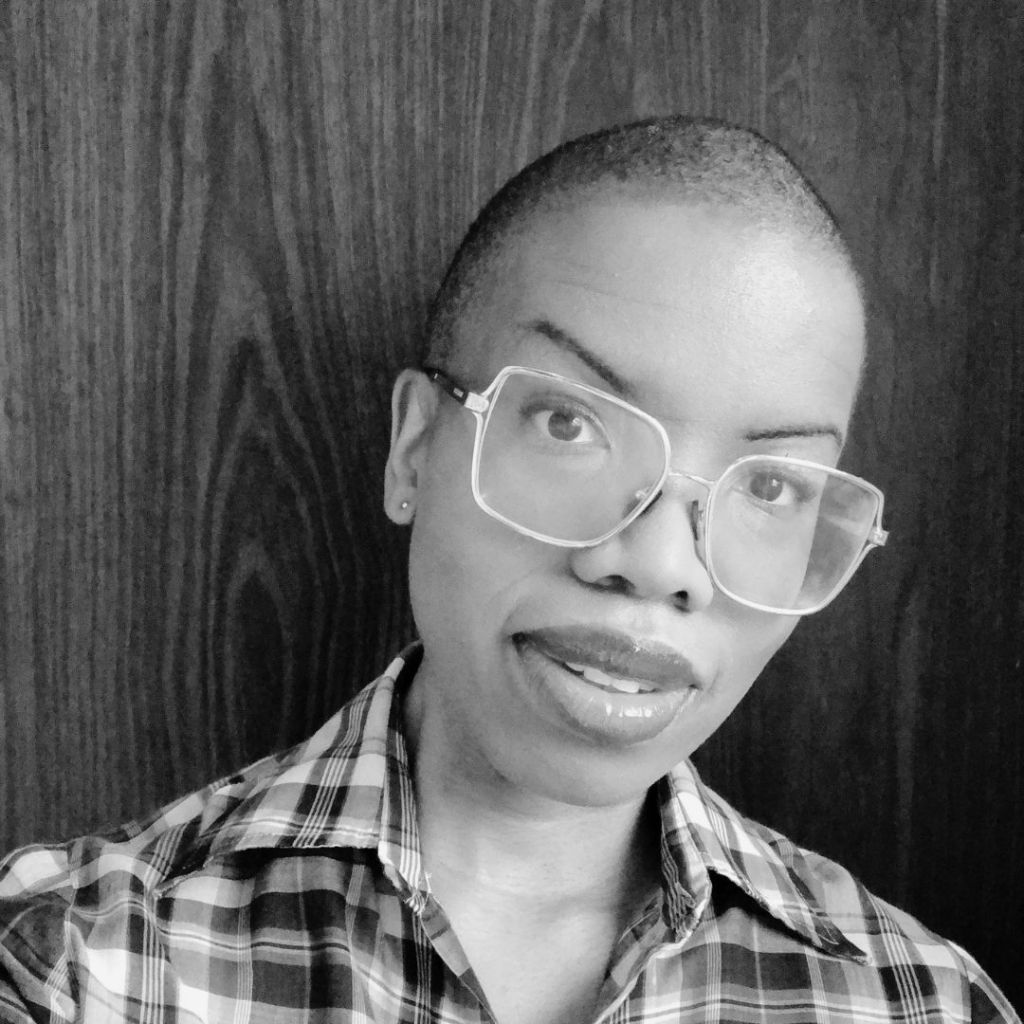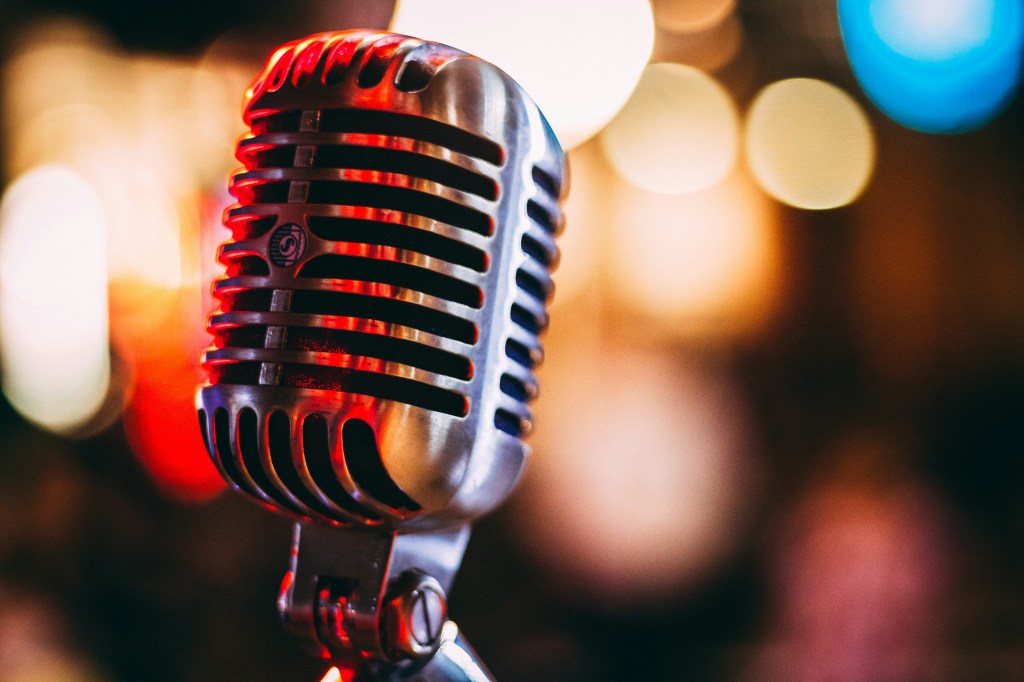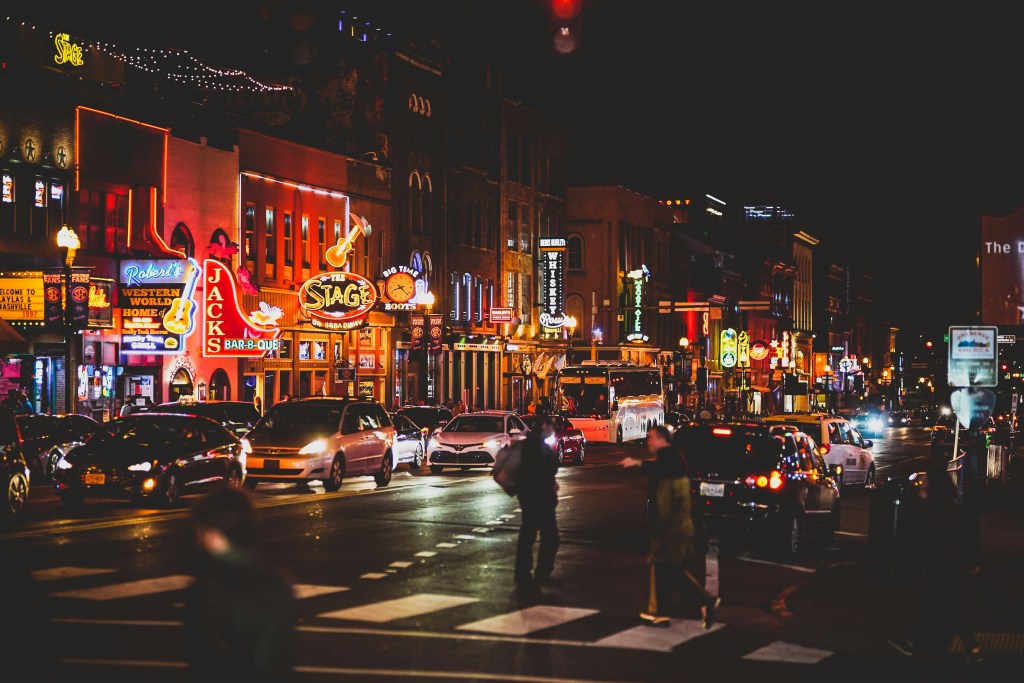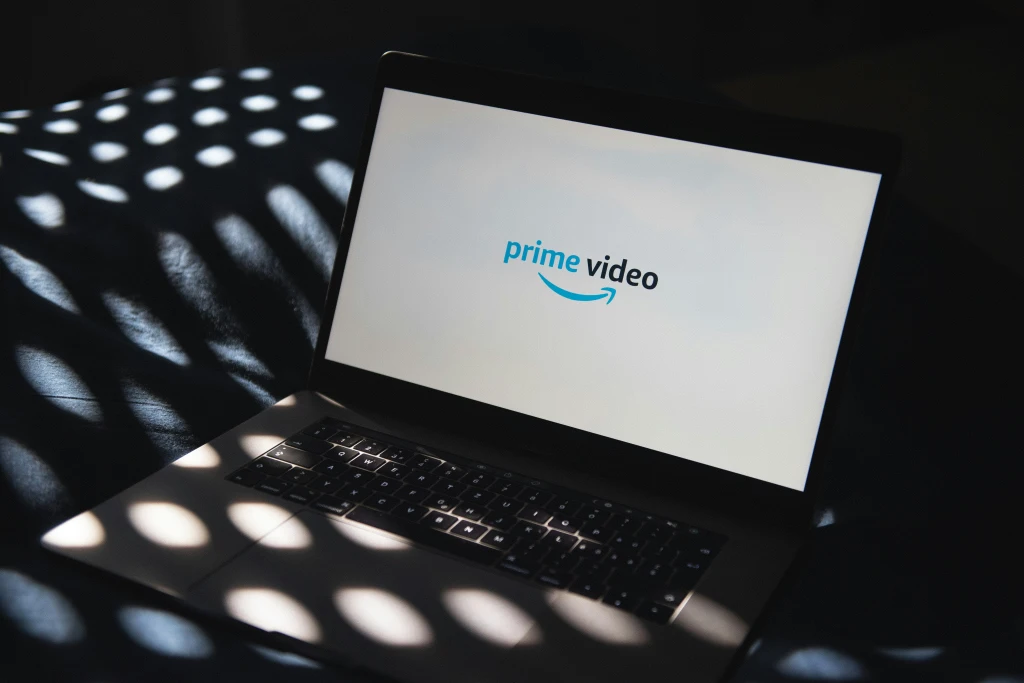It’s Black Business Month, and I’m proud to bring you my latest discussion. This time around, I spoke with a thriving African-American entrepreneur and businesswoman.

Maya Ford is the founder of FordMomentum!, a communications firm located in Houston, Texas. The FordMomentum! team remains committed to treating communications as a science, while upholding an inclusive perspective to their work. As for Ms. Ford, I absolutely love the way she describes herself.
“I’m a pioneering marketing and communications professional with over 20 years’ experience in almost every major industry. My passion is to integrate diverse perspectives into viable solutions that businesses and communities can implement together. I’m a global cosmopolitan, creative, innovative, a master communicator, a strong listener, and driven towards measurable success.”

Maya Ford is a force—bursting with energy and ideas on how to make our world a better place for future generations. One of these ideas includes an innovation called STOLO. STOLO or the Standard of Love, is a data-driven communications methodology that businesses can use when engaging with members of the public.
FordMomentum! has already used STOLO while working on projects designed to improve people’s lives. Together with The Kinder Institute for Urban Research, the company produced the My Home is Here study, focused on Harris County, Texas—a dynamically diverse region which includes the City of Houston.
Maya and I spoke earlier this summer, and I’m eternally thankful for the opportunity to connect with her. With Juneteenth on our minds, she was able to highlight perspectives that one ought to consider when working with diverse employees and customers. From the moment our virtual conversation began, Maya began sharing engaging insights. Her words inspired me to ask a question about an important aspect of contemporary communication.
I really want to get to STOLO.
But you mentioned compassion earlier. And if we could talk about leading with compassion for a minute, I’d like that. Because one of the things that frustrates me, and one of the things that has motivated my writing is people out there who, with regard to racism, are resistant to the idea of compassion. They seem to be taught that compassion is a weakness, or it will lead to a lessening of themselves, or the degradation of society. When you speak of leading with compassion, though, I would say that you and I understand that compassion does not mean something negative.
Considering that, let me ask this: What does leading with compassion mean to you?
I love this question. At its most basic form, for me, it’s not imparting or continuing suffering with others. There’s a fine line between hard work and growth. In biology, nothing grows without force. But there’s a difference between growth and the hard work that it requires—like ripping a muscle so that it can get stronger and longer—versus suffering. And suffering is an emotional weight that’s in a very interesting space, because it’s simultaneously physiological and spiritual.
And I think this is why suffering is such a hard thing to certify, because the spiritual weight of suffering can actually convert and change the physical nature of a being.
Suffering lacks compassion.
Humans are so brilliant, because we can imagine things that don’t exist. We’re highly tethered to the spiritual—to that other plane. And that’s also the thing that makes humans incredibly violent, incredibly anxious, and very deadly to the rest of the planet.
Yes.
Suffering is a space that is full of anxiety, physical or emotional pain, and trauma that has no end. And this is something that I believe is fundamentally against the nature of the Divine Creator itself. Compassion is the active practice to not cause suffering: To not impart it, to not participate in it, and to not support it.
Suffering is a terrible, non-compassionate activity. So I do everything to push good work, hard work—but no suffering.
Wow. Thank you.
We need to understand when we’re causing suffering. Sometimes I think we’re so busy being busy, working towards production or consumption, particularly in the Americas. Have we stopped to consider that we’re harming ourselves or others? We might be our own problem.
Talking about Juneteenth in your lifetime—let’s start at the beginning. What has that day meant to you? What has your relationship with the holiday been like?
I was born in Houston, to an American mother and Panamanian father. And growing up, we did not celebrate Juneteenth at all. As an adult, I moved away from Texas, and I came back. Eventually, I learned about Juneteenth. And I was baffled that I hadn’t heard about it as a younger kid, because my family is very pro Black—pro diaspora.
I think that it was a really interesting holiday—to celebrate persons who recognize that they were no longer enslaved. And I honor and offer a ton of compassion and respect for celebrating a day that’s important to you.
And yet, Juneteenth didn’t bring the promise that we thought it would. To me, it rings hollow. Black people are still not particularly any free-er. We’re not any safer economically. And today, I feel about Juneteenth, as though my ancestors had a lot of hope.
In one way, they have realized that through me: I’m the first person in my family to be born with full rights as a US citizen.
Still, the national federal holiday of Juneteenth rings hollow because it did not come with reparations, or true benefits to African Americans in Texas to apologize for the fact that a) we heard about our freedom 901 days late, and b) that we didn’t get a single element of reparations for those Texans’ children. Around that time 30% of Texas’ population was enslaved people . So that’s a lot of people that you got an extra 901 days of labor out of.
And when we talk about the economic components of today’s Black population in America, in 2021, we only earned 9.6% of the country’s overall wages, [even though Black workers make up 12.9% of the labor force].
For enslaved Black people in Texas—even the descendants of those Black persons—it’s offensive, frankly. So I’m challenging Black Americans, Black Texans, African American Texans in particular, to shut down the economy on Juneteenth. Spend nothing—don’t consume and don’t produce.
Yes…
The work isn’t done yet, though. And again, I’m not opposed to celebrating whatever we need to get there. But those celebrations need to come with meaningful edification and change that helps us to be sustainable. Period. Anything less as a standard is the same standard that gave us the news 901 days late.
I was doing some research and I noticed a lot of Juneteenth products.
So we can talk about the ice cream, and we could talk about the merchandise in general: How do you feel about who produces Juneteenth merchandise? For instance, if it comes from a big corporation versus a mom-and-pop shop that is Black owned, etc. Does a product’s source matter to you?
That’s a great question.
Talk to me.
I don’t know who ideated the Walmart product. What I know is that we do seek authenticity, and we seek a space that understands that Black America is not a monolith.
So, let’s talk about the Walmart product: they used red, gold, green, and black. And perhaps that was in an effort to honor African ancestry. But, fundamentally, the persons who were alive at the time of the first Juneteenth were born on US territory. So my question is, why make it a product that acknowledged African ancestry instead of American ancestry?
This idea of consistently othering is very concerning. And I think Walmart also utilized AAVE, or African American Vernacular English. One of their Juneteenth slogans was, “It’s the freedom for me!”—a phrase which is so much about [the stereotype of] a Black woman’s sass, and how that sells.
And when I think of phrases like “it’s the freedom for me”, it’s like, “What?!” What are you doing? For the Fourth of July, they have songs that are about the sovereignty of the United States. And some of those songs even have a feeling of somberness and deep respect. But to kind of sassify this idea, and suggest that African Americans are saying, “Oh, we’s free now. It’s the freedom for me!” Like, what is that? We don’t get to have something that honors the fact that we were brought to this land, and we brought great investment to this space?
I think that it felt somewhat insulting.
And let’s say that it was a Black creator, on behalf of Walmart that created the ice cream.
Yes?
Well, this perspective would show that Blacks across the US are not a monolith. We don’t all have one perspective. So when it comes to authenticity, I think it is very important that we announce, and we articulate, and we highlight, “Who am I talking to here?” Am I talking to Walmart that that claims to be American, but buys most of its products from China, and then resells them on the backs of slave labor? Or am I speaking to Maya Ford who is truly intentional about working in communities, and working to make sure that those neighbors are valued? Which is it?
But the hypocrisy lies in the production element.
Our health care is about getting back to work faster. In our education system, they want you to spit out information so that you can get to work faster. When we go into a recession, our financial components are all about the fact that the economy is cooling off. We have to keep things moving. There’s no space to consider other elements of the equation like joy, rest, collaboration, or nature. It’s all about production.
And then what do we do? Black people are paid 30% less than everybody else. So we do all of that work. We hustle it for pennies on the dollar, and then we turn around and buy it back.
So when you ask me about this space of production and consumption, why are we upholding this system?
I challenge us to do the opposite. Why can’t we do like Jewish communities do for Holocaust Memorial Day? Shut things down, let that be the day of storytelling. Let that be the day of local community farming and gardening. Let that be the day of sharing your story or finding your ancestry. Let that be the day of discovery and connection to the God that allowed us to continue to be, instead of the day that is about production and consumption. Could we have one day?
So, what’s missing from retailers’ approach to Juneteenth celebrations?
In the most tangible sense, I think it would be an authentic acknowledgement of the suffering behind the day, but not in a trauma porn way.
Yes.
Respect. What’s missing is respect for the suffering that people went through.
These companies don’t do that for the Holocaust.
Don’t get me started.
They don’t do kitschy shit for the Holocaust. They don’t do that shit for the Vietnam War. And while it is true, African Americans do a beautiful job of converting trauma into celebration, it is a strength. That’s a very specific asset that African Americans turn to.
We have enough trauma. So we don’t always need to be reminded of it. But I think honoring and demonstrating respect for the fact that that was, historically, a torturous period, is necessary.
Yes.
Perhaps even giving more context to the products and talking about how they help the African American plight would be an improvement.
There seems to be a disconnect in some executives’ minds between the idea of culture-specific holidays versus the actual people who celebrate them. Can you discuss the problems that may arise via misunderstanding the purpose of these occasions? Here, I was thinking about when holidays are focused on as money making opportunities, instead of centering the people who traditionally celebrate them.
I do think authenticity matters.
And what we’re learning is that the United States is a really challenging space, because we’re not homogenous. And that’s a great problem to have. Our level of diversity is so deep that very few other nations have the complexities in diversity as we do. I don’t think that this is a bad thing. I think this is a very good thing. I think that it benefits us: the more ideas we have, the more collaboration, the more diverse we are, the better.
That being said, I would argue that we’re moving into this era that still does not have ethnic diversity in critical leadership positions.
Yet those same decision makers are making decisions for persons that they don’t know. They’re looking on loose data. They’re making assumptions about those that they serve, instead of really understanding from lived experience, or from the capacity to have critical thought and actually connecting with those people. So it’s a really lazy way of doing business, which is how you come up with products like the Walmart ice cream.
I think that across the board, if you can remember that service to others is not about you, and dig into the work for those whom you are serving, then you get authentic, better outcomes, and better products that work. And you will have sustainable models to serve those people.
When you’re pushing your latest, greatest idea that they may or may not have ever told you that they wanted—then you know you’re doing it for yourself. And what I do know is that Black folks, considering they’re such big consumers, when they wake up, they’re not going to accept that any longer.
Let’s get into STOLO a little bit. I understand you founded this methodology, and STOLO means Standard of Love.
Could you begin by explaining a bit of what STOLO is?
Well, I never saw myself as an inventor, I always just thought, “oh, I can take this thing and make it better…” And bell hooks is one of my favorite authors. At the time, when Trayvon Martin was murdered, we were devastated. I’m a mother with three children. I have three stepchildren. I’m a grandmother.
It was unfathomable, that a young kid that looked like our own kids could be walking in our own neighborhood, and someone could attack them for no reason. It seemed like something out of the civil rights movement. It just seemed very foreign to me.
And so, I started thinking things like, “what are my own tools and resources?” What do I have?
I didn’t have money. But I have a big fat mouth that I like to use. And I have a critically-thinking brain. And I know a lot of what [the late] bell hooks spoke about.
What she talked about was that African Americans have always had the juice, but we have not activated it due to trauma. But when we move through our trauma, what is possible?
The Standard of Love asks questions. I liken it to the scientific method. The scientific method doesn’t tell you if your theory is right or wrong. It simply carries you through a process that allows you to ask more questions and to get some evidence for your theory to confirm or deny a hypothesis, and then you move to the next step. STOLO is the same thing, but for communications. It has five categories. We call them pillars: Literacy, values, self-esteem, economic power, and justice.

The first three are the most important. You can’t solve what you can’t name. And different cultures typically have their own languages. For example, many people use onomatopoeia.
African Americans also use AAVE. But even AAVE is a derivative of Southern English. So you wouldn’t have a Northern African American naturally speaking AAVE, unless they had some ancestry or components linked to the South.
Certain Asiatic languages use tones. You can have one written character that sounds four different ways. So based on that, you know which word it is. That’s a cultural component; it would take a non-Asiatic language speaker years to understand the variations of the four tones.
Various languages use different signifiers; these are the variables of communication of language literacy. And when you go into different spaces, you have to know the correct language to be able to communicate effectively.
And then there are values: What is important to people? We talk about values the most, because it’s the secret sauce of everything, everywhere. Values are the shared space, where people are willing to announce what is important to them, and they’re willing to protect them. So if you go for values, you’re always, always going to win.
But the second part of values is worthiness, and how much are one’s values worth?
Really, what we estimate, is that African Americans value safety. And they think that money provides safety. And it does to a certain extent, but that’s not the full picture. When we’re able to identify what their values are, its creativity, its safety, its color. African Americans lead in hair design, and nail design, and fashion, all of these things that the whole rest of the world picks up. And Africans have been doing this for centuries with natural dyes and braiding, and all kinds of intricate patterns and weaving. This is an asset.
These first two elements actually show you an important part of people’s cultural currency: When you look at literacy and values, how important are they to you? And what are they worth? Those things are assets.
Right now, African Americans give away their assets. We give them away, and then somebody else takes those things, and goes and makes gazillions off of us. “It’s the freedom for me.”
The third part of STOLO is self-esteem. When you do things that make you feel better, you move out of trauma. And so many of the things that we do are done because we’re traumatized. It’s like the person who just keeps running. They keep moving, constantly, because if they sit down, they feel like they’ll lose everything—they’ll never be able to get up. And they don’t know how to do anything other than just keep on going. Yet this is a detriment to the psyche, and to our physical being.
What STOLO helps you do is focus your energy and pursue what you value, go for your highest priorities, and stop doing other shit. If you don’t value something, why are you doing it? If you don’t like poopoo on your plate, why do you keep ordering it?
Instead, say you want Whole Foods on your plate, and that’s what you’ll get.
Those are the first three steps. But after that, you’ve got economic power, and justice. Justice is not just about justice in the sense of closure. It is also about fairness. Completion. Balance, and reciprocity.
So the Standard of Love asks us, if we truly believe that the standard that this nation was built upon is accurate, then great. Let’s keep going, understanding that we’re never going to get justice. But if we ask ourselves, what are these elements that we believe should be in play, then this gives us new variables to create a future that is truly inclusive of everyone. It doesn’t exclude whites, or Asians, or men, or people who don’t identify as a gender. If anything, it is more open, more inclusive. It’s not linear. It feels very much like science fiction. But it’s so tangible.
Okay, then. My next question is, why should people use STOLO when they’re developing a strategy related to an occasion like Juneteenth? And then how can STOLO’s pillars be applied to their situation?
I think the first thing to ask is “What do we value?” And if we value freedom, that’s really great. Are you free? What is freedom?
Let’s go into the language of STOLO. Just the first three pillars articulate some of that: What do you call freedom? What do you value, and how does it make you feel?
Some people are deeply connected to their traditions. And that’s a very human thing. It tethers us to those who came before us, and some people see Juneteenth as a day to honor and celebrate those that came before them.
My family does that through reunions. Every culture does it differently. There’s no right or wrong way. But first articulate it. Name it, and then ask yourself, even within your traditions, what do you value? So if it’s truly freedom that you value, then, are you free? And what is that worth to you? How is that freedom expressed? Is it that you deserve a day off, or something else?
And the third part is self-esteem. If something makes us feel worse about ourselves, are other people benefiting beyond us? For something like Juneteenth, we need to really think that through and articulate what it is that we want instead.
And I would challenge organizations who are creating programming, products, or services around anyone’s cultural holiday or celebration to dig deeper into the authentic components of service to that culture. Do they really know what’s important to the people? And are they not using big data alone to gather information?
Okay. I’ve I asked you about the why, and then the how of how STOLO’s pillars can be applied to companies’ efforts. Did you want to go into that a little more?
On a corporate level, what are their goals? If your goal is to capitalize on the success or the suffering of a population, then you need to stop that. If your goal is to satisfy shareholders, then, no. That’s unacceptable.
If your goal is to create meaningful impact, then don’t wait until shit happens. Do the real work, and aim for truly rewarding solutions. For example, it took time to put Juneteenth ice cream into production. Even if they put it in one or two locations, it took them at least six to nine months to get that into production.
But what about other responses? Walmart could have said, for Juneteenth, “we’re leaving all of our clinics open for therapy”. They could have done so many other meaningful things. And they still could have made money. They could have said something like “Your first two therapy sessions free, we’re only hiring Black therapists, and then after that we’ll offer them at the regular rate!”
I think corporations need to dig into their own values, and hire FordMomentum! We’ll help them through.
Excellent! If leaders and organizational staff want to genuinely support Juneteenth, or other diverse celebrations, but are hesitant or unsure of how, what steps can they take in order to do so?
I love this question. I think it’s really important that we give ourselves space to make mistakes. And that’s what allyship is about. Right?
We’re human. This is new for all of us. Whether you were born in the United States, or you just got here 500 years ago, it has not been a space of equity. And you know, there’s been this idea of inclusion for all. Our nation touts that but it has not lived up to it. And so, when approaching people who celebrate traditions that are new to you, it’s okay to show up in spaces and not know everything, and be gentle.
Just be gentle. Say, “Hey”. Ask people questions. If they feel annoyed with you, then shut the fuck up. And move to the next person. You can show up at a Juneteenth event and bear witness, you can show up and not have to be the center of attention, you can show up and ask questions, or go with someone that you know.
If you don’t have friends that are not of your culture, you’re missing out, you know? One of the greatest gifts that God gave us is diversity. And it’s free!
Absolutely!
It’s free. So go with a friend. If you don’t have any friends then go to events with hopes that you can connect with one person. Or, if you can’t attend a live event, support someone else that you know and say, “Man, I’m not feeling comfortable going this year, but maybe I could go next year with you.”
I like that. To a certain extent, you’ve answered my next question. Because I know we started talking about leaders and organizational staff. I was going to ask about members of the public who are interested in celebrating with diverse communities, and they want to connect to them in an authentic way. And you’ve brought up the idea of them talking to people—reaching out and actually putting effort into communicating with Black people.
We all have to do the work, sis. I think that the brilliant thing about this time and space is that no one gets to be in the passenger seat. Everybody has to do the work. So it forces all of us to be vulnerable together.
I have one more question. What are your hopes for the future? What are you having faith for—believing? Or, what are you thinking in general, about the future of how Juneteenth is regarded in America, and perhaps the world?
I think the conversation of race and ethnicity is one of the lowest frequencies that we can put out as a human species.
What do you mean by that? Elaborate.
It’s just not a high achieving conversation. It’s just so unnecessary compared to all the things that we can do. The future that I would love to see is one that genuinely stops having this conversation. Right now it’s necessary to get to equity, right?
But I would love to be in a position where this is not a problem for us anymore. And instead, we’re talking about really high-level issues, like how to maximize the efficiency of tools and resources that we do have, or how to equitably protect resources that are here that we don’t fully understand.
As our conversation continued, Maya encouraged people to pursue the goal of an equitable society, while holding their heads high.
You know, [Edward R. Murrow] said difficulty is the excuse that history will never accept. And the truth is that it’s equally as hard to uphold what we don’t want, as it is to build what we do want. The work is the same. Why put effort into what you don’t want? We get to choose. So if I’m going to put effort into something…
Yes?
I’m not putting effort into lower standards. I will put the same work into new standards. This is true for all of us of every ethnicity, every economic group. Every life form right now in this universe must work towards expansion. We’re all in the same boat. No one is exempt. So you’ve got to do the work to move forward. Stop holding on to the low of the past. We have every tool, every resource—every everything—right here, right now. Allow June 19, 2022 to be the year that African Americans recognize that we can keep moving forward with higher standards. But first, we must identify what those standards are.







Leave a comment